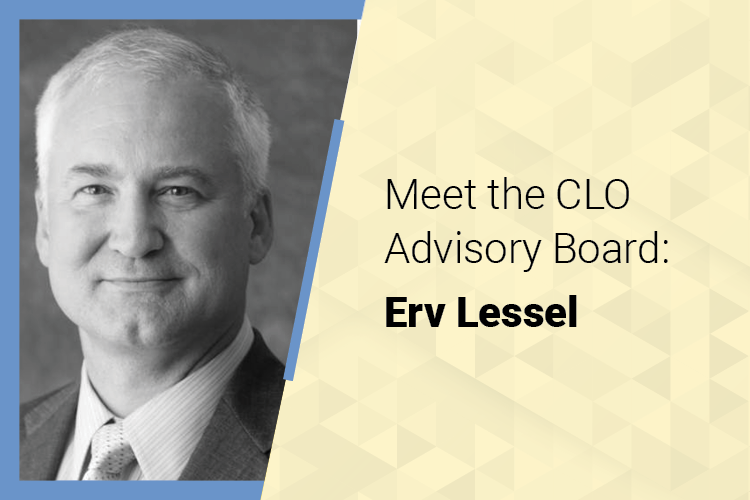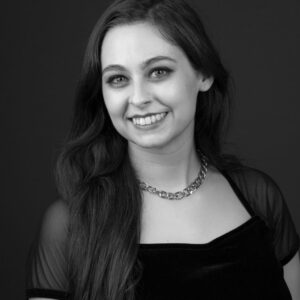
Meet longtime CLO Advisory Board member Erv Lessel, managing director for Deloitte Consulting LLP.
by Elizabeth Loutfi-Hipchen
April 8, 2021
 Chief Learning Officer recently sat down with Erv Lessel, managing director for Deloitte Consulting LLP. Lessel is a retired Air Force major general, serving 31 years in mobility operations, strategic planning and programming, and strategic communications, and has been with Deloitte for over 10 years.
Chief Learning Officer recently sat down with Erv Lessel, managing director for Deloitte Consulting LLP. Lessel is a retired Air Force major general, serving 31 years in mobility operations, strategic planning and programming, and strategic communications, and has been with Deloitte for over 10 years.
Chief Learning Officer: Where is your hometown?
I was born and raised in Washington D.C., which was very interesting because it has a blend of local politics, national politics and international politics. I moved away shortly, came back and lived there through high school. Over my career with the Air Force, I returned to the Washington D.C. area three different times for Pentagon assignments, and have lived in Maryland, Virginia, and in Washington, D.C. But the Air Force had me moving over 15 times during my career, both around the U.S. and around the world.
CLO: How did you first become interested in learning and development?
I was an avid student. I really enjoyed learning, grade school through high school. I was really interested in math, science and literature. Then I went to the United States Air Force Academy and got a fantastic education there, across every field imaginable from law to philosophy to electrical engineering to astronautical engineering. I was an astronautical engineering major. After graduation, I went to pilot training where again, I was a student, and then after graduating from pilot training, I became an instructor pilot. I was an instructor in multiple aircraft, and it was very interesting. I loved teaching in a classroom that could move hundreds of miles per hour through the air, fly from the ground up to 40,000 feet, and travel around the world. So that was my real first taste of being an instructor and seeing how rewarding it was. Being a flight instructor was unique. Then I culminated my Air Force career as the director of plans, programs, requirements and assessments at Air Education and Training Command, where I had the opportunity to help guide the future of the Air Force and how we were going to recruit, train and educate airmen for our future Air Force.
CLO: What lessons did you learn in the past year in 2020 that you’ve taken with you into 2021?
One of my observations this past year while working for Deloitte was seeing across a lot of different industries that organizations that were really prepared for change and had invested in technology really survived and thrived during a very turbulent year, while many other organizations who hadn’t made that investment and weren’t prepared played catch-up. It’s a good lesson: When there’s a forcing function like COVID, change becomes much quicker. Organizations need to take advantage of crises and change effectively. It was amazing that schools implemented distance learning and organizations implemented remote work in a matter of weeks and months instead of the years that many of them had taken. And personally, the lessons I had were a chance really to think about what’s important in life and about relationships with family and friends.
CLO: What leadership skills and capabilities from your time in the Air Force have you found particularly useful in the business world?
In my Air Force career, I was a pilot and had a background in operations, planning and leading large organizations. All of these were very useful and helpful experiences. It helped me better understand problems and problem-solving and challenges that face organizations and the workforce. Based on my prior military experience and now my civilian experience with more than 10 years in consulting, I find that, cumulatively, that all provides me the opportunity to offer more viable and innovative solutions to the problems organizations face. A lot of my military experiences gave me several opportunities to focus on the future. A lot of times I would joke that I actually lived in the future, really focused on innovation and entrepreneurship and coming up with solutions to training and warfighting challenges that Air Force and joint organizations would face. Like I mentioned earlier, at Air Education and Training Command, I had the opportunity to envision how we were going to recruit, train and educate airmen in the future Air Force. That was extremely rewarding work.
I found that those military skills and experiences, and certainly the people skills that you develop — the leadership skills, the team-building skills and the communication skills — are all very fundamental to how you successfully complete the mission. My philosophy on leadership is that there are two kinds of leaders: There are sustaining leaders and then there are visionary leaders. Sustaining leaders are trying to maintain current operations and make sure that the mission and function don’t fail today, and visionary leaders are concerned about today’s mission success, but also thinking forward to the future. They’re creating new visions and deciding on pathways for how to make the organization even better in the future, and how to improve workforce skill sets and capabilities. I’ve always lived in that camp. I like making sure that we didn’t fail in the present, while staying very focused on the future.
CLO: How do you enjoy spending your time outside of work?
During COVID this past year, I’ve really gotten into walking. In the past year, I’ve walked over 2,000 miles trying to get in five to six miles every day. It’s what I call “walk and talks,” where I can be doing work by taking phone calls while I’m outside getting some fresh air. Then I like to play golf and play almost every week. Before COVID, I used to really enjoy travel and cruise vacations, and I can’t wait for conditions to improve and start taking vacations once again. I’ve always enjoyed reading to expand my horizons and learn more.
CLO: What book, either audio or physical, or podcast got you through the pandemic?
This past year during the pandemic and having to stay at home, reading was my go-to activity. I enjoyed reading more than 40 books of many different genres to include science, philosophy and business. Here’s a couple of titles for you, and just a sample of the books I read this last year:
- Yuval Noah Harari, two books, “Sapiens” and “Homo Deus”
- Carlo Rovelli, “Seven Brief Lessons on Physics”
- Marcus Aurelius, “Meditations”
- David Deutsch, “The Beginning of Infinity”
- Shoshana Zuboff, “The Age of Surveillance Capitalism”
- Toni Morrison, “Beloved”
- Steven Pinker, “Enlightenment Now”
Some of the podcasts I enjoy include TED Talks, Philosophy for Our Times, The Accidental Creative and the Harvard Business Review’s HBR Ideacast.
CLO: In your opinion, what are some components of a robust L&D program?
First and foremost, for modern visionary learning and development programs, programs have to be learner-centric. Everything needs to be more and more focused on the learner experience, how they learn, when and where they learn, and the learning impact an L&D program can have. Second is the integration of the L&D function with business operations. They’ve got to be tightly connected so that L&D is properly supporting the business while the business needs to understand the requirements for learning and development so it can effectively support the L&D function. Third, I would say, is a focus on rapid innovation. It’s very important, with these changing times and the speed with which technology is evolving, that you develop agile technologies and rapidly innovate and accelerate the change that’s taking place. You must embrace the change and accelerate it. Another area is focusing on the richness of content; curated content that’s tailored to the individual learner’s needs and requirements and making it accessible. I would also say continuous learning, with a greater focus on workflow learning. I’ve seen that as a trend and think that it’s really, really important to get out of the traditional mode of formal training to learning just in time as needed, where needed, when needed, which is in the flow of work.
CLO: What advice do you have for CLOs and learning leaders as they take on 2021?
Embrace change. It’s with us. The more you’re comfortable with change and can lead that change, the better off you and your organization will be. Accelerate the innovation. Focus on learner needs and their requirements. And lastly, I would say, live in the future. Do the planning necessary for the future of work. The workforce, the workplace, and the kind of work that’s to be done in the future is changing significantly, and I think it’s important for CLOs and learning leaders to understand those dynamics of change and be prepared for them by being proactive rather than reactive.
ALSO READ: Lessel’s recent article for CLO: “Moving from distance learning to learning distanced.”
This article has been edited for brevity.




